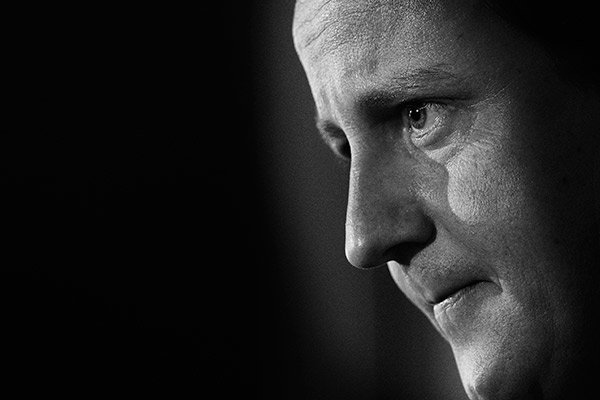The Conservatives head to their conference with a big opportunity, but also plenty of threats, many of which are of their own making. David Cameron’s task is to drag the party with him to a place the electorate finds appealing.
That is why the Conservative party finds itself at a crossroads. Given Ed Miliband’s badly stuttering momentum, the Conservatives should have an opportunity to win over voters. But several factors weigh against them. An economic recovery without a wage recovery. A high profile defection to UKIP, perfectly timed to cause maximum disruption. And, as ever, the issue of Europe.
For some Tory ultras, losing the next election is a price worth paying if allows them to topple the current leadership and construct a more right-wing, more euro sceptic party from the rubble of Cameron’s conservatism.
But it isn’t just Europe that divides the Conservatives. Despite the Crosby-inspired shift to the right to shore up the party’s flank against the advance of UKIP, despite having approval ratings higher than the party, and despite the economic recovery, Mr Cameron is still deeply disliked by some in the party. His recent moves to address the issue of ‘English votes for English laws’ are indicative of the pressure he is under to placate them.
That is the challenge for the party leadership and its moderates. Winning the war within, while at the same time triumphing in the electoral battle outside.
The party still has plenty to do on that front. The polls in Tory marginal seats, dubbed the 40:40, make sombre reading. The Conservatives are likely to win seats like Solihull off the Lib Dems, but just as likely to lose ones like Great Yarmouth and Wolverhampton South West to Labour. The party is haemorrhaging support to UKIP, while Labour appear to be mopping up a larger share of the disaffected Lib Dem vote.
That is why Mr Cameron and Mr Osborne will be praying that the economic recovery begins to translate into a pay packet recovery, particularly in the battlegrounds of the Midlands and Essex.
It is that age old problem for the Conservatives. The electorate trust their management of the economy. But it doesn’t yet trust them to distribute the proceeds fairly, particularly in comparison to the populist Mr Miliband. Mr Cameron’s challenge at this conference, and in the election campaign to come, is to convince voters that the Tories believe in social security as well as rugged individualism, low taxation and sound public finances.
No post-war party in Britain has lost an election when they have polled ahead of the opposition on leadership and the economy. Unless Mr Cameron can put out the fires in his party, and convince the electorate that the Tories are more than just capable accountants, the Conservatives may just create a bit of unwanted history next May.
Explore the Road to the Manifestos – our guide to the people, processes and policies that matter in the lead up to the 2015 General Election.

